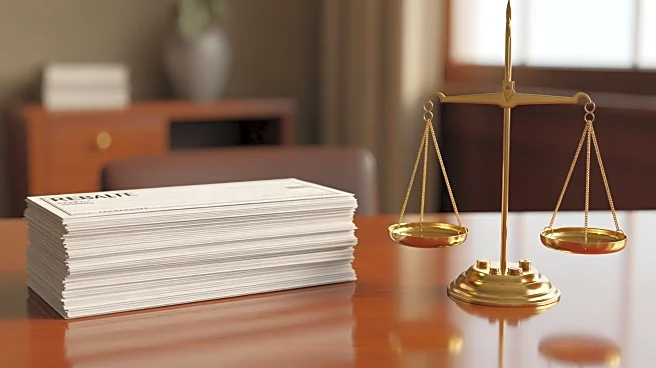What's Happening?
Treasury Secretary Scott Bessent has indicated that President Trump's proposal to issue $2,000 tariff rebate checks to Americans would require congressional approval. The proposal, which aims to use tariff revenues
to fund these checks, has been suggested by Trump in recent months. The Supreme Court is currently reviewing the legality of Trump's tariffs, which have been criticized for contributing to inflation. Bessent expressed confidence that the court would not rule against the tariffs, but acknowledged the potential complications if it did. The tariffs have been a point of contention, with critics arguing they act as a tax on consumers.
Why It's Important?
The potential rebate checks could provide financial relief to American families, particularly those with lower incomes, amid ongoing economic challenges. The Supreme Court's decision on the tariffs could have significant implications for U.S. trade policy and consumer prices. If the tariffs are struck down, it could lead to changes in import costs and affect various industries reliant on foreign goods. The proposal reflects broader debates on the use of tariffs and their impact on the economy, highlighting tensions between trade protectionism and consumer interests.
What's Next?
The Supreme Court's decision on the tariffs is awaited, which could influence the feasibility of the rebate checks. If the court rules against the tariffs, Congress may need to consider alternative measures to support consumers. Additionally, ongoing trade negotiations with China regarding rare-earth minerals could impact future tariff policies and economic relations. The outcome of these discussions may affect the availability and cost of essential materials for U.S. industries.
Beyond the Headlines
The proposal to use tariff revenues for rebate checks raises questions about the ethical implications of funding consumer relief through trade barriers. It also highlights the complexities of balancing economic protectionism with consumer welfare. The Supreme Court's decision could set a precedent for future administrations regarding the use of emergency powers in trade policy.









